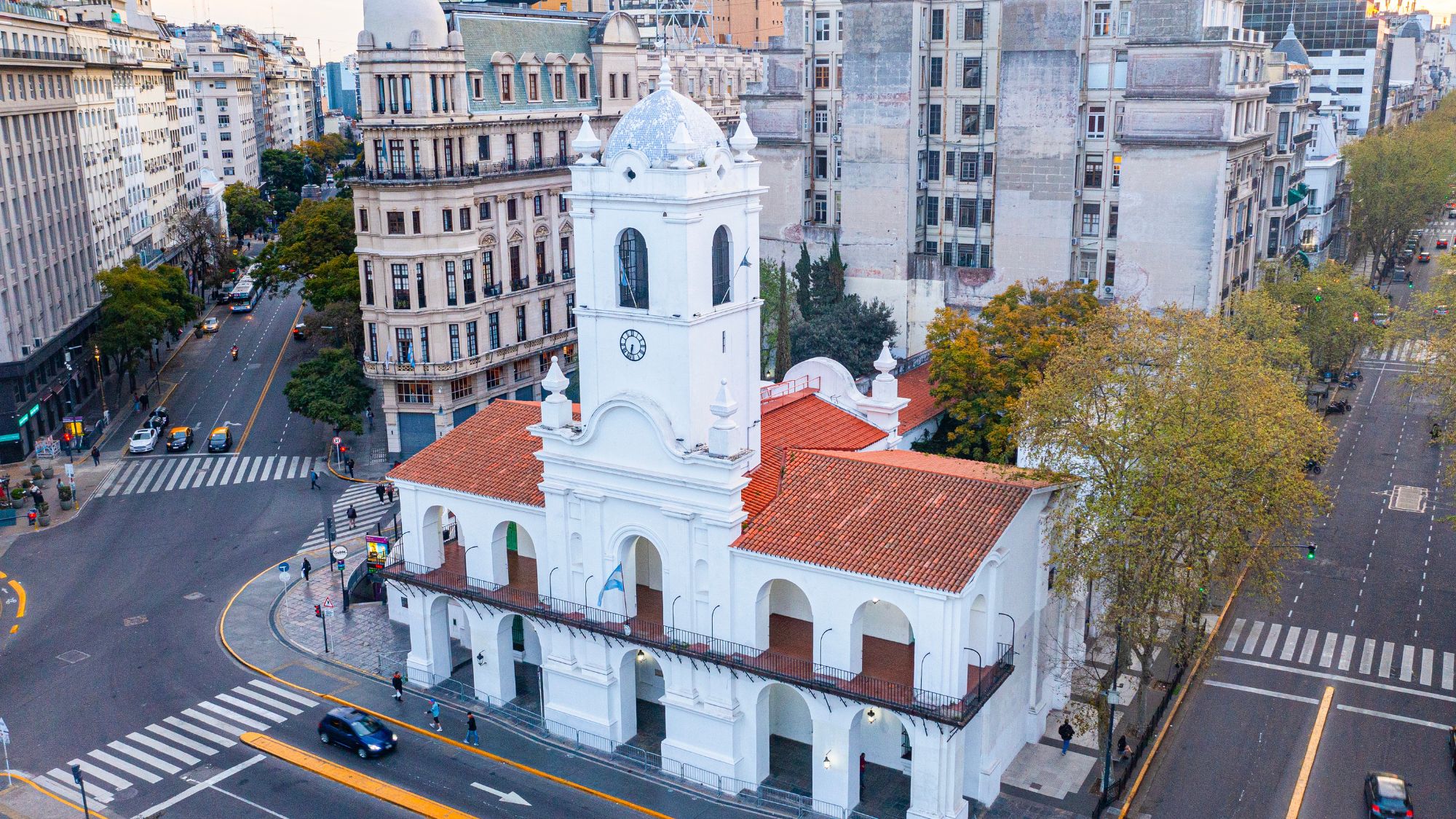Going back in time in Buenos Aires
Embark upon a foodie and historical tour in this charming capital city

A free daily email with the biggest news stories of the day – and the best features from TheWeek.com
You are now subscribed
Your newsletter sign-up was successful
Buenos Aires has been called "the world capital of nostalgia" – and nowhere is this spirit stronger today than in the city's many "old-school" cafés and bars, said Chris Moss in The Times.
Memories of the "Old World" and the Argentinian capital's own storied past pervade these neighbourhood institutions, beloved by locals for their "authenticity and atmosphere", but rarely noticed by tourists. A new website, bardeviejes.com.ar, lists hundreds of them. With their "sepia" lighting, creaking ceiling fans and vintage coffee machines, they are wonderful places to sit and daydream over an espresso (or a glass of wine or something stronger). And the website's map makes it easy to plot long walks through the city with stops at the most captivating of these bars.
For an introductory nine-mile stroll, start with breakfast at Bar Británico, which opened in 1928 and hasn't changed much since. It sits on a "picturesque" corner opposite the park where Buenos Aires is believed to have been founded in 1536. From there, you might walk through San Telmo, with its colonial-era buildings, and past the Plaza de Mayo, where Eva Perón addressed her "shirtless ones". Stop next at the Saint Moritz bar, which counts Jorge Luis Borges among its past habitués. With its 1950s leatherette chairs and waistcoated waiters, it is "reassuringly unpretentious".
The Week
Escape your echo chamber. Get the facts behind the news, plus analysis from multiple perspectives.

Sign up for The Week's Free Newsletters
From our morning news briefing to a weekly Good News Newsletter, get the best of The Week delivered directly to your inbox.
From our morning news briefing to a weekly Good News Newsletter, get the best of The Week delivered directly to your inbox.
Beyond lies Retiro, where the wide boulevards and jacaranda trees are redolent of the city's heyday – the 1910s – when Buenos Aires was dubbed "the Paris of South America". In chichi Recoleta, the "stately" museums of Fine Arts and Decorative Arts (the latter housed in a lovely beaux-arts mansion) are worth a visit, and Rodi Bar does "superb" locro (bean stew) and schnitzels ("eaten far more commonly in Buenos Aires than steak").
From there, you could proceed through wealthy Palermo Chico and the rose gardens of Parque 3 de Febrero to the "staunchly lower-middle-class" barrio of Núñez, for a plate of revuelto gramajo (hash, ham and eggs) at Bar la Escuela – "the perfect foodie finale".
A free daily email with the biggest news stories of the day – and the best features from TheWeek.com
-
 James Van Der Beek obituary: fresh-faced Dawson’s Creek star
James Van Der Beek obituary: fresh-faced Dawson’s Creek starIn The Spotlight Van Der Beek fronted one of the most successful teen dramas of the 90s – but his Dawson fame proved a double-edged sword
-
 Is Andrew’s arrest the end for the monarchy?
Is Andrew’s arrest the end for the monarchy?Today's Big Question The King has distanced the Royal Family from his disgraced brother but a ‘fit of revolutionary disgust’ could still wipe them out
-
 Quiz of The Week: 14 – 20 February
Quiz of The Week: 14 – 20 FebruaryQuiz Have you been paying attention to The Week’s news?
-
 James Van Der Beek obituary: fresh-faced Dawson’s Creek star
James Van Der Beek obituary: fresh-faced Dawson’s Creek starIn The Spotlight Van Der Beek fronted one of the most successful teen dramas of the 90s – but his Dawson fame proved a double-edged sword
-
 Properties of the week: pretty thatched cottages
Properties of the week: pretty thatched cottagesThe Week Recommends Featuring homes in West Sussex, Dorset and Suffolk
-
 Kia EV4: a ‘terrifically comfy’ electric car
Kia EV4: a ‘terrifically comfy’ electric carThe Week Recommends The family-friendly vehicle has ‘plush seats’ and generous space
-
 Bonfire of the Murdochs: an ‘utterly gripping’ book
Bonfire of the Murdochs: an ‘utterly gripping’ bookThe Week Recommends Gabriel Sherman examines Rupert Murdoch’s ‘war of succession’ over his media empire
-
 Gwen John: Strange Beauties – a ‘superb’ retrospective
Gwen John: Strange Beauties – a ‘superb’ retrospectiveThe Week Recommends ‘Daunting’ show at the National Museum Cardiff plunges viewers into the Welsh artist’s ‘spiritual, austere existence’
-
 Bad Bunny’s Super Bowl: A win for unity
Bad Bunny’s Super Bowl: A win for unityFeature The global superstar's halftime show was a celebration for everyone to enjoy
-
 Book reviews: ‘Bonfire of the Murdochs’ and ‘The Typewriter and the Guillotine’
Book reviews: ‘Bonfire of the Murdochs’ and ‘The Typewriter and the Guillotine’Feature New insights into the Murdoch family’s turmoil and a renowned journalist’s time in pre-World War II Paris
-
 6 exquisite homes with vast acreage
6 exquisite homes with vast acreageFeature Featuring an off-the-grid contemporary home in New Mexico and lakefront farmhouse in Massachusetts